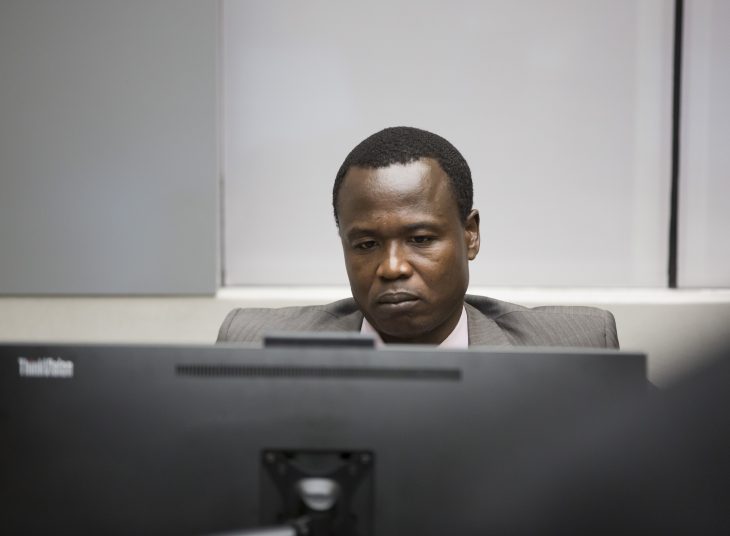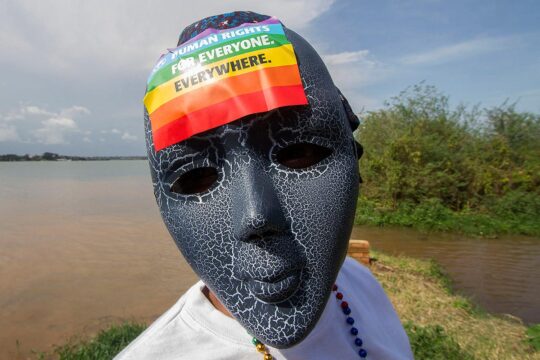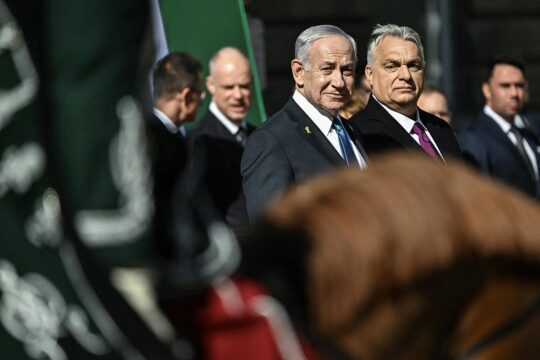The Lord’s Resistance Army (LRA) in Uganda earned a fearsome reputation over a thirty-year insurgency. Best known for abducting children and pressing them into service as soldiers, porters and sex slaves – a practise which, during the early 2000’s, forced thousands of young people in northern Uganda to trek each evening into the safety of towns – the rebel group was also known for common brutality: hacking off limbs, descending into camps of displaced villagers, murdering and pillaging.
The LRA leader Joseph Kony attained worldwide ‘super-evil’ status after an ill-conceived campaign to argue for his capture went viral among American college kids. References to religious rites and mysticism helped to add mystique to the fanatical image Kony projected. That was back in 2012, when defeating the LRA appeared to outsiders ‘doable’ and worthy.
The International Criminal Court (ICC) had already become an element in the ‘get Kony’ bandwagon when then prosecutor Luis Moreno Ocampo infamously met president Museveni in a London hotel in 2004 and agreed to investigate at Kampala’s request. Interpol then added him to their ‘most wanted’ list. But the Hague’s only prize out of its very first state referral was the unexpected surrender in 2015 of the lowest-ranking – and probably the only one still alive, apart from Kony – of the five people identified as deserving of ICC prosecution. Since Dominic Ongwen walked out of the bush in Central African Republic and American special forces handed him over to The Hague, this former abductee turned LRA henchman has been the prosecution’s Uganda poster child.
A perpetrator and a victim
The case against him was “well investigated”, says Thijs Bouwknegt, assistant professor of the University of Amsterdam, “in comparison with others at the court” and has included tangible evidence such as audio recordings and contemporaneous notes on LRA communications, “so perhaps this case will be able clearly to be proved beyond reasonable doubt”. Nevertheless, as the ICC has failed to put the rest of the LRA leadership in the dock, (two others have been confirmed dead, and testimony regarding the killing of Kony’s deputy Vincent Otti has been heard in court) it’s curious that as “maybe, the least responsible on the list,” Ongwen faces such a slew of charges. While based on specific crimes in specific places, the total – some 70 counts – is more than notorious defendants such as Liberian president and former rebel leader Charles Taylor and Serbian president Slobodan Milosevic have faced at other tribunals.
What’s also problematic, even though the evidence against him is considered strong, is that Ongwen is a victim as well. In other cases – consider the ICC’s first prosecution, that of Thomas Lubanga Dyilo for recruitment of child soldiers – the Office of the Prosecutor has “stressed that child soldiers are traumatized by default, just by being child soldiers” says Bouwknegt. And the defence is going to make that contradictory status a central plank in their arguments.
The trial has just entered a crucial stage, and in opening statements on September 18, defence counsel Krispus Ayena Odongo referred to this victim-perpetrator duality several times, for example, stating Ongwen “was just a child when he was abducted, brutalized and made in the bush with no mind of his own” and asking the judges rhetorically whether his “victimhood ceased at any time during his captivity with the LRA?”
Ongwen’s mental issues
Also at issue, and linked to the former child soldier arguments, will be Ongwen’s current mental health status. Two mental health experts will be called to defend their early report for the defence – not accepted by the court – that concluded he was not fit to stand trial. Tom Maliti of the International Justice Monitor recalls that the court also heard at one point how Ongwen was suffering in detention as a result of the Dutch habit of excessive fireworks at New Year’s which gave him recurrent nightmares of his life in the LRA. The question has been asked in court as to whether he’s so traumatized he doesn’t really know what’s happening. Maliti speculates that a further effect of Ongwen’s ill-health may be the limitations he has placed on the defence because “their client has spent most of his life living in the bush in northern Uganda and other countries, isolated from normal life, so he may not be able to brief them on how to defend him”. Certainly, the defence has shown a number of approaches, including both that their client acted under “duress” and that he exhibits “Stockholm Syndrome” where he identifies with his abductor.
To support these arguments, during the next few months, in amongst the usual dry legal court procedure the judges will also be hearing evidence on “Kony’s spiritualism”. Experts in the LRA cosmological order, discussion of local Acholi cultural practices, and an extension of the debate on whether western legal practice is suitable for complex African situations, are all due to come up, as the defence makes its case. Maliti expects up to 66 witnesses to be called, including some of Kony’s own children who could explain how Kony’s spiritual powers dominated his followers “and what hold he had over LRA members of all ranks”.
Justice seen from Northern Uganda
Gladys Oroma, a journalist based in Gulu, has spent last year researching a long audio series telling the stories of those affected by LRA violence and asking what justice may mean to them. The most positive view of the Ongwen case, she says, is that it might help focus some attention on the north of Uganda, where people just want “something to change their lives”. But many see The Hague proceedings as essentially part of the long process of covering up the reality that more than one side in the conflict committed crimes. “They want justice from both sides” she says, including the Ugandan army. In its opening remarks, the defense made the most of allegations that the government itself committed atrocities, arguing that “this is a political case” and Ongwen himself is a “complex political victim”. That Kony himself is not in the dock as he is assumed hiding out in the “badlands” between the Central African Republic and the Democratic Republic of Congo is also a matter of regret to the prosecution, says Bouwknegt, because it would “make their case stronger both in fact and in public opinion”.
The part of the defence case that is expected to provoke strong interest, says Oroma, is testimony from those closest to Ongwen, his former wives. People are wondering “how they could have gone through forceful rape themselves and then defend him” she says.
Whatever evidence the defence puts forward to show that their client’s state of mind, and whether he is a victim rather than a perpetrator, the discussion about the extent to which he could and should face punishment will certainly continue whatever the verdict. Indeed, argues Bouwknegt, “there may be a stage, after the defence, when all parties discuss mitigating factors: can he be held liable and to what extent?”







